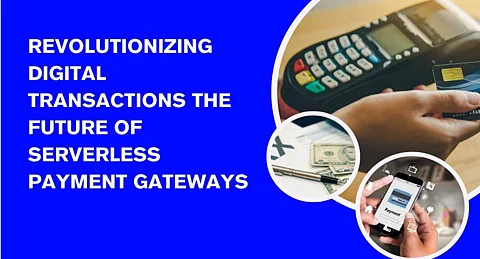

Financial technology innovations are transforming transaction processing, prioritizing speed, security, and efficiency. Bharath Kumar Reddy Janumpally delves into a revolutionary shift in payment gateway architectures, highlighting the adoption of serverless computing as a key advancement in digital transactions. Traditional systems often struggle with scalability and operational overhead, but serverless architectures eliminate these challenges by enabling dynamic scaling, reducing infrastructure complexity, and optimizing resource utilization. This new approach not only enhances transaction processing speed but also strengthens security and cost efficiency, making it a promising evolution in the financial technology landscape.
Traditional payment gateways frequently encounter scalability challenges, necessitating significant infrastructure investments and intricate capacity planning. While cloud computing has alleviated some of these issues, the growing need for enhanced efficiency has driven the shift toward serverless architectures. By removing the dependency on dedicated infrastructure management, serverless computing allows payment systems to scale dynamically in response to fluctuating transaction volumes. This approach minimizes operational overhead, streamlines resource allocation, and improves cost-effectiveness. With automated scaling and event-driven processing, serverless payment gateways enhance performance, ensuring seamless, efficient, and secure transaction processing in an increasingly digital financial landscape.
A current payment solution must scale easily, as transactional volumes are really unpredictable. A serverless architecture scales automatically, managing resources dynamically in real-time according to demand. Because of this, the system can work with optimal efficiency, allowing for the automatic handling of both low and high loads of transactions without human involvement. There are no delays or bottlenecks because serverless solutions use a just-in-time model that only allocates resources when they are required. The flexibility of serverless solutions helps payment gateways to manage spikes in traffic smoothly and ensures transactional efficiency without compromising cost-effectiveness and operational stability in a rapidly changing atmosphere of digital finance.
Security remains paramount in payment gateway systems. Serverless payment architectures integrate multiple layers of encryption, authentication, and fraud detection mechanisms. Advanced security frameworks, including JSON Web Tokens (JWTs) for authentication and role-based access controls, ensure that transactions remain secure. Compliance with stringent financial regulations, such as PCI DSS, is also streamlined through automated security measures that adapt to evolving threats.
A key advantage of serverless computing is its event-driven architecture, where payment transactions initiate independent functions that handle various stages of the transaction lifecycle, from authorization to settlement. This modular approach optimizes efficiency, minimizes latency, and accelerates processing speeds. By breaking down operations into smaller, specialized tasks, serverless systems ensure seamless execution. Additionally, real-time monitoring and automated scaling enhance responsiveness, allowing payment gateways to adapt instantly to fluctuations in transaction volumes. This architecture improves reliability, performance, and cost-effectiveness, making it an ideal solution for modern digital payment processing.
Cold start latencies, which is presented when the function is called from idle stand, delays transaction processing. Various optimizations are focused on avoiding this situation, including function pre-warming, lightweight runtime environments, and intelligent workload scheduling. These mechanisms help minimize initialization delays in the processing of payment transactions. By managing resource provision proactively, the serverless payment gateways ensure minimal latencies even during peak transaction loads. This results in better efficiency and user experience while maintaining the responsiveness and reliability of payment systems in high-demand digital financial settings.
Data Management is extremely important for the transactional maintains consistency and auditability within serverless payment gateways. It utilizes hybrid storage methods consisting of low-latency databases for real-time transaction processing and cold storage, which is cheaper for historical record-keeping. This makes possible faster access to active data, decreased storage costs, and integrity between multi-function transactions managed through distributed transaction protocols and event-sourcing mechanisms her serverless payment gateways provide seamless consistency, reliable figures, and well-optimized resource usage- making this kind of system worthy of the modern digital financial ecosystem.
Scalability is one of the most important features of serverless architectures for the great cost savings that they give. Serverless solutions run on an execution-by-payment model, optimizing costs for the actual resources utilized, while traditional infrastructures keep allocating resources regardless of demand. The same holds good for a payment system where the transaction volume fluctuates, ensuring the optimum use of resources. Studies indicate that serverless solutions may drive down operational costs by as much as 45% as compared to traditional payment gateways, making them very attractive from an economic perspective.
In summary, with the evolution of digital transactions, serverless architectures will set new standards in the industry with their features of scalability, security, and efficiency. Serverless payment gateways aptly address some of the major concerns of financial institutions and e-commerce platforms, namely speed of transaction, compliance, and cost optimization. By depending on event-driven processing and automated scaling, these systems will operate smoothly under varied transaction loads. Bharath Kumar Reddy Janumpally is research that shows how this approach revolutionizes resilient, secure, and affordable payment processing solutions for the future of financial technology.
